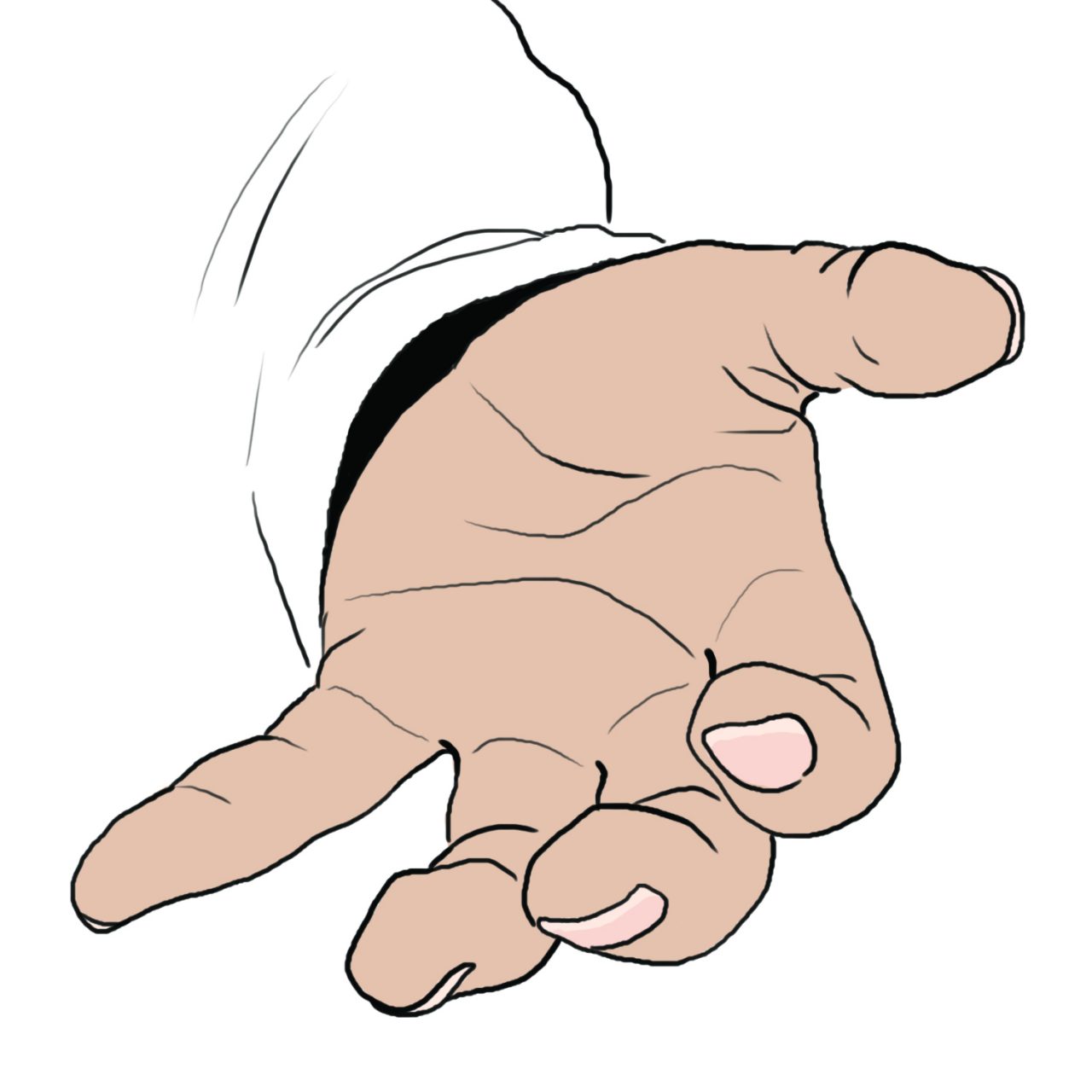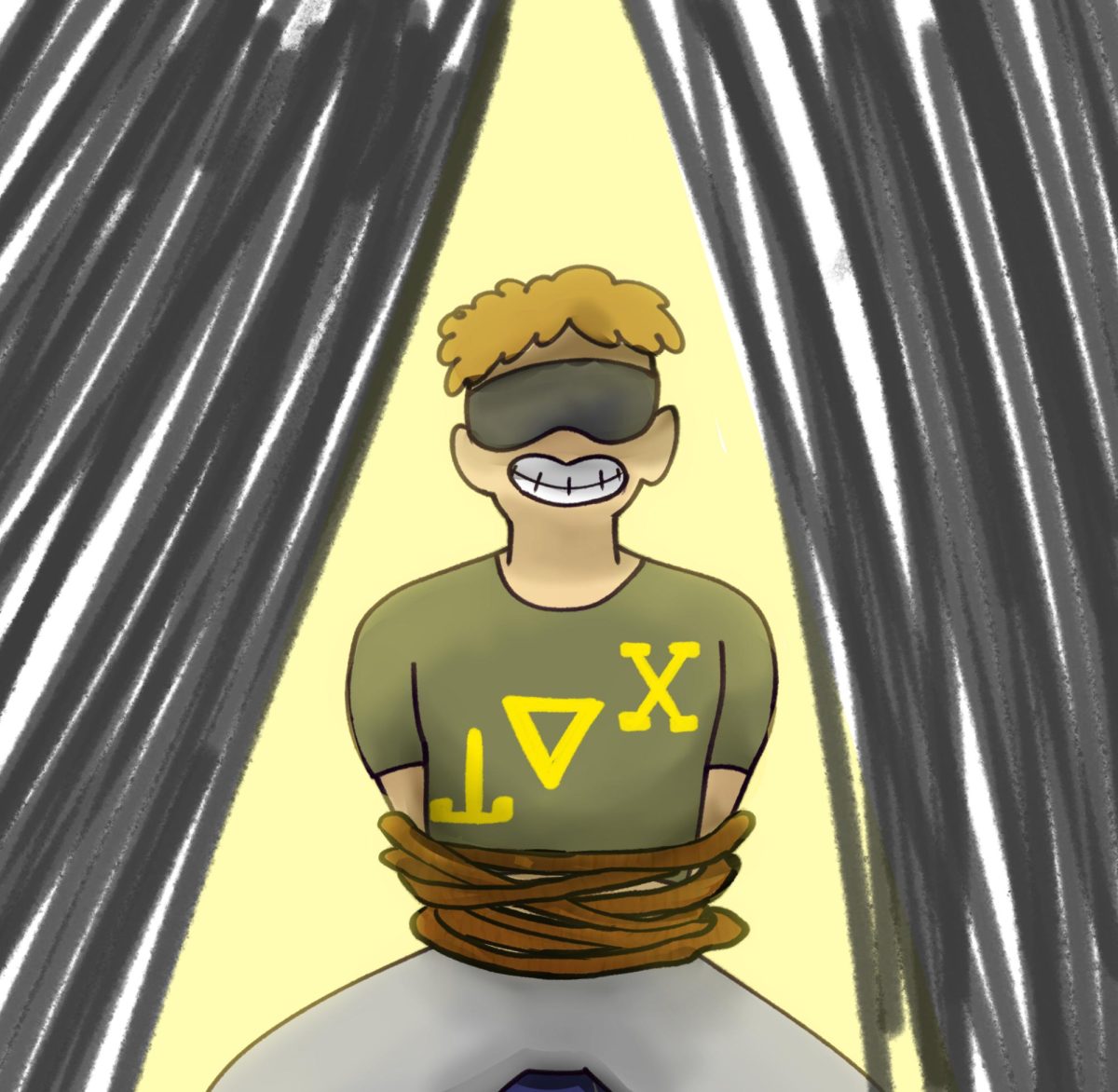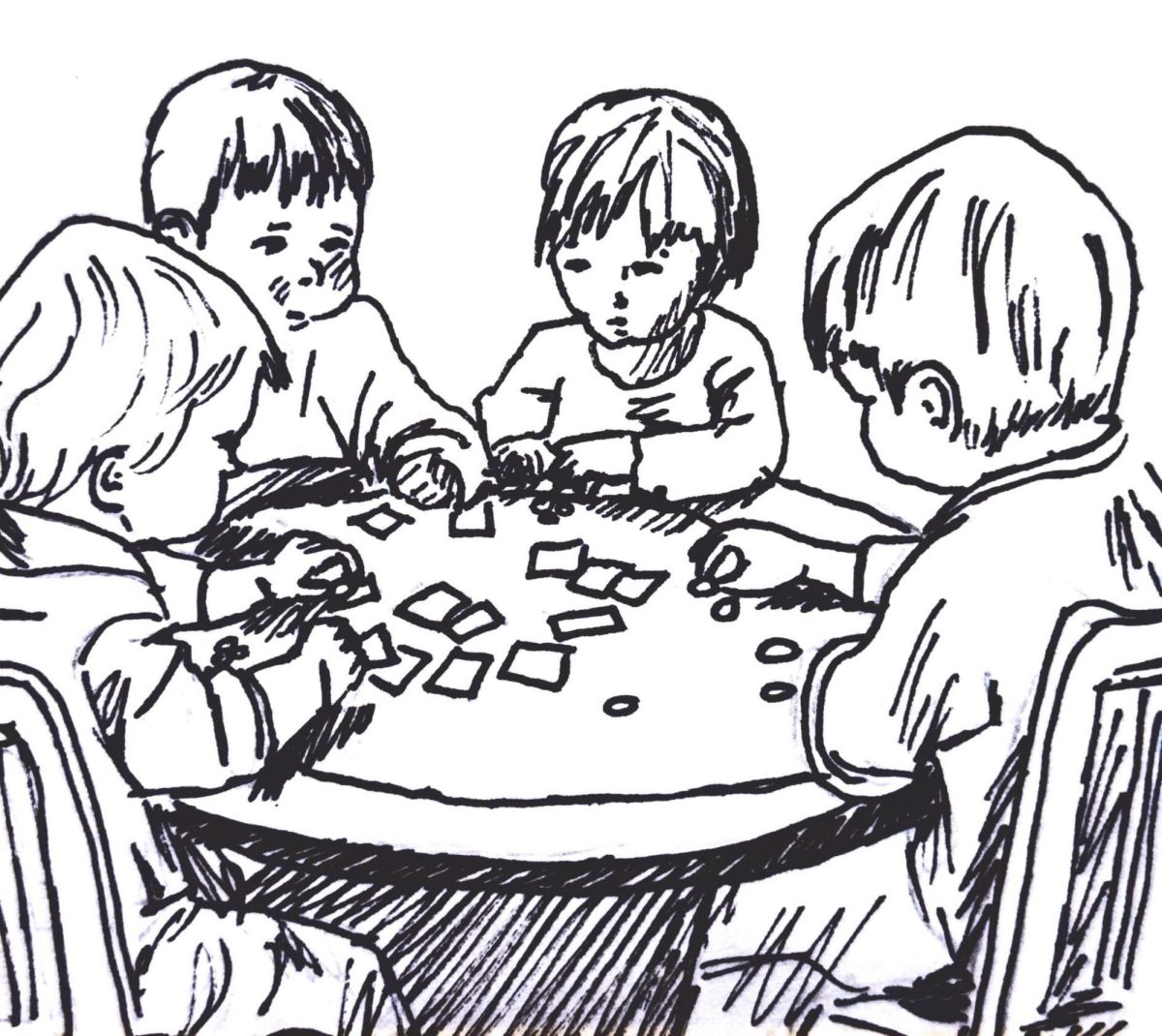Illustration by Ren Rader
As many of you already know, I have lived with severe depression for the majority of my life. And, like many of you, my depression is definitely triggered by our current uncertain and, frankly, scary global COVID-19 crisis. In some ways, it is comforting that my previously non-depressed friends are now saying things like, “I just have to get through today.” Welcome to the club.
In other ways, I am reminded how lucky I am to have a steady income, secure housing, a degree of financial stability and space and freedom to “social distance,” and then how ungrateful and wretched I must be to still feel stressed, anxious and depressed at this time.
Each day is challenging and online teaching sometimes feels a lot like this,
as I imagine is the case with online learning. We are regularly told to stay strong, be positive and look at this as an opportunity rather than a calamity. For the people who can maintain that position, that’s amazing: I am so impressed with you and the world definitely needs you right now. For people like me, forcing positivity is not an option. So what do we do?
In therapy, I have many moments like this,
where I make a hyperbolic statement (usually something negative about myself) and my therapist then challenges me on the actual facts that might back up that statement. Am I really failing at everything? Is it true that no one really likes me? What evidence do I have? I find these questions extremely annoying. But, they do help. Yes, I can list a few people who definitely like me and at least one thing I am succeeding at (usually keeping plants and a dog alive are my go-tos). This reframing doesn’t stop me from feeling bad about myself, but it does help me reorient myself toward reality. Accepting that reality (people like me!) is challenging and is more of a practice than a one-time action.
It is this reframing that I believe we need now. No, I do not think we need to necessarily “stay positive” or see a global pandemic and economic disaster as an opportunity to learn to play the guitar or try bread-baking. What I do think is that we need to accept the reality we live in now. Yes, this sucks. It really does. It is scary and anxiety-producing and any sense of safety and security we might have relied on in the past is, at best, uncertain. However, the sooner we accept this reality and start to live our lives within it, the better, in my opinion. What can you do today to bring a smile to your face? To someone else’s? What are the steps you can take now to control the things that you do have power over? Who can you ask for help if you need it? What small things can you celebrate (my plants are doing GREAT)? How can you share love with your friends, family, fellow students, faculty and staff, and the broader world?
I do not have the answers to these questions — they will have to come from you. I am also not always great at maintaining this point of view. More often than not, I spend significant parts of my days hiding in my bed or watching Netflix, and that is OK. I am learning to forgive myself for that. But the next day I try again. It is all we can do.
Sarah Erickson is an assistant professor of communication and the co-director of the Women’s and Gender Studies minor.







Erica Schoenberg • Apr 30, 2020 at 6:41 pm
I can relate! My response to the pandemic has been way less severe than I expected, and I think it’s due in large part to the fact that I was already used to the feelings of hypervigilance and, like, existential angst, and already have tools for them! The tools are just getting used way more frequently now haha
Judith Norman • Apr 24, 2020 at 11:17 am
Thank you! This was thoughtful, helpful, and lovely.
ciara mcdaniel • Apr 24, 2020 at 10:11 am
queen